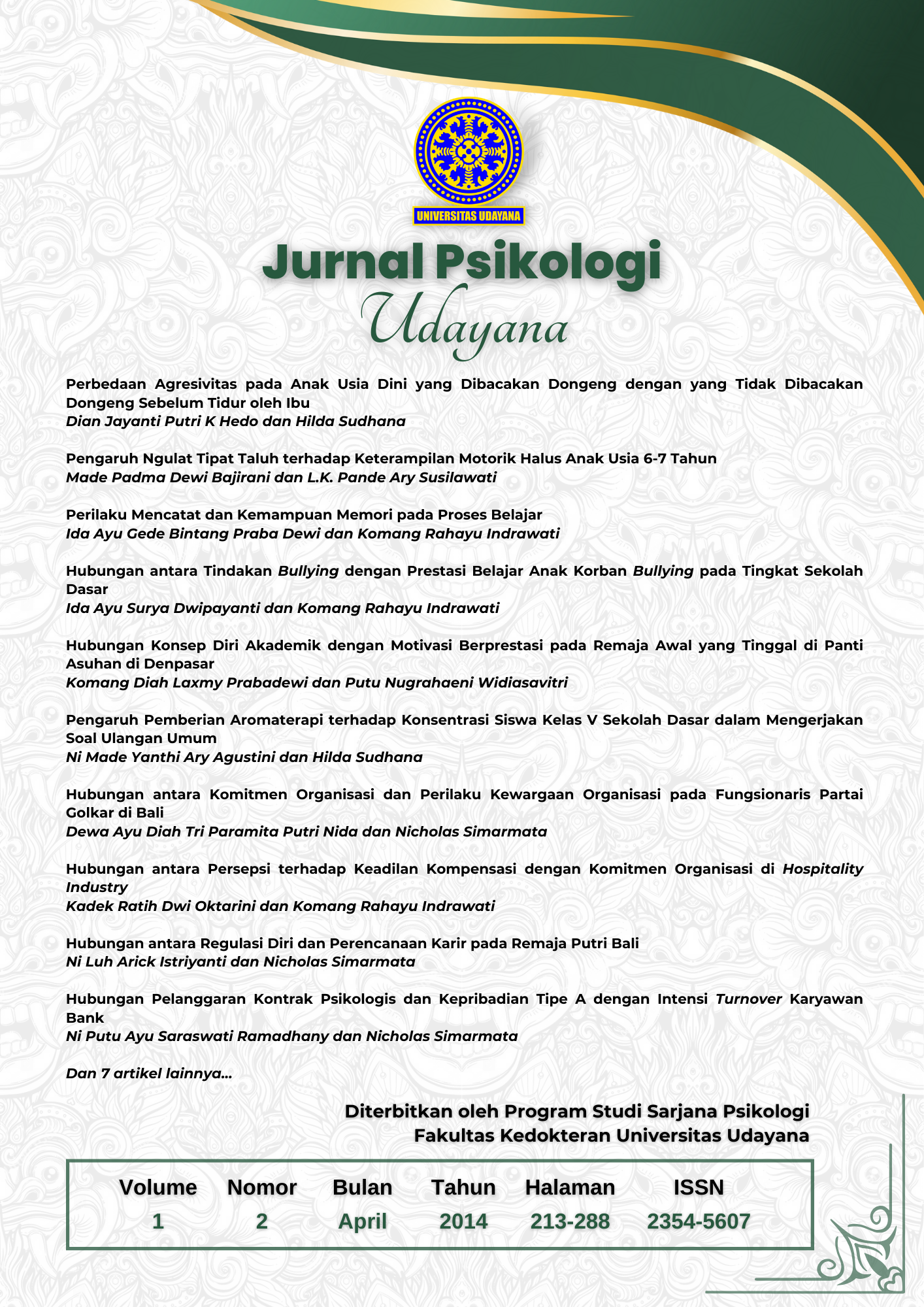Pengaruh Ngulat Tipat Taluh terhadap Keterampilan Motorik Halus Anak Usia 6-7 Tahun
Abstract
Fine motor skills are very important skills that needed in child development and it require training and skills to be developed. However, there are only few of fine motor skills development which based on culture and uses traditional activities to be the tool to improve the child’s fine motor skills. In Balinese culture, one of activities which can be used to develop fine motor skill is ngulat tipat taluh. Based on this problem, the aim of this study was to determine the effect of ngulat tipat taluh to fine motor skills in children aged
6-7 years.
This study used an experimental method with one-group pre-test post-test design with 49 people as subject. Data in this study was collected by measuring fine motor skills variable in pre-test and post-test. The measurement is using mazes that consist of 8 items, and after the validity and reliability test each items was valid with rix in range 0.298 to 0.712 and alpha cronbach reliability coefficient (?) is 0.812. Based on the results of the statistical paired T-test, the value of significance (2-tailed) 0.00 ? 0.025 (? = 0.025) and the t value in this study was 6.603 greater than t table (1.677). Based on statistical analysis, it can be concluded that the alternative hypothesis (Ha) can be accepted and there was significant influence ngulat tipat taluh to fine motor skills in 6-7 years old children.
Keywords: Ngulat tipat taluh, fine motor skills, children aged 6-7 years.
Downloads
Authors who publish with this journal agree to the following terms:
- Authors retain copyright and grant the journal right of first publication with the work simultaneously licensed under a Creative Commons Attribution-ShareAlike 4.0 International License that allows others to share the work with an acknowledgement of the works authorship and initial publication in this journal.
- Authors are able to enter into separate, additional contractual arrangements for the non-exclusive distribution of the journals published version of the work (e.g., post it to an institutional repository or publish it in a book), with an acknowledgement of its initial publication in this journal.
- Authors are permitted and encouraged to post their work online (e.g., in institutional repositories or on their website) prior to and during the submission process, as it can lead to productive exchanges, as well as earlier and greater citation of published work (See The Effect of Open Access).













